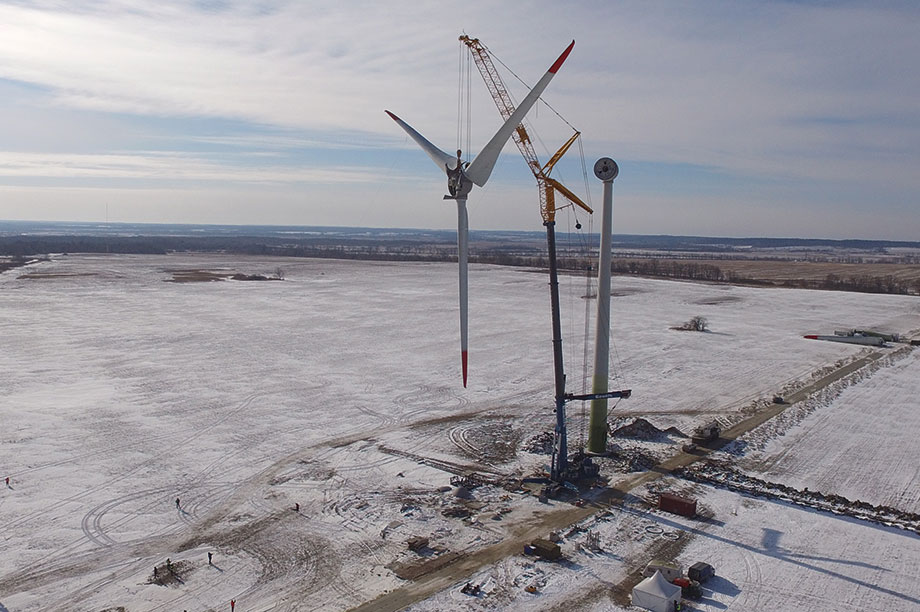In a petition sent to the Russian energy ministry, developers argue that the quarantine measures imposed by the government to combat the Covid-19 pandemic mean they cannot progress projects to completion in time.
The signatories have also asked the state to continue the provision of support to the industry in the form of increased payments from the wholesale energy market, as part of the existing power delivery contracts.
The Russian wind power association (RAWI) is supporting the petition. "The quarantine measures introduced in Russia to combat the virus have affected the production of turbines and their components, as well as wind-farm construction timetables," RAWI chief Igor Bryzgunov told “uåX˜äŠÊ˜·³Ç.
"Russia is a very large country. The introduction of pass-entry systems in most regions has interrupted the supply of components within Russia and imports of many items from abroad. Also, at present foreign specialists are heavily involved in the construction works, especially turbine installation. The temporary border closures mean they have no access to Russia. This is disrupting construction and causing delays in commissioning newly built wind farms.
"Russian law imposes serious penalties for the failure to meet commissioning deadlines for wind farms. That’s why it is important to officially delay the commissioning of projects that were built before the quarantine was introduced — this adds up to a total capacity of 1.2GW. There is also a need to postpone the localisation qualifications for investors, with a simultaneous extension of the power supply contracts," Bryzgunov added.
However, the Russian government has rejected granting universal concessions. According to deputy energy minister Yevgeny Grabchak, the state plans to consider each case individually and will not grant an extension if commissioning of a wind farm was caused by any factors not associated with Covid-19.
Still, the government and local analysts do not expect a full-blown crisis in the country’s wind power sector, as most of the industry players are major companies with enough reserves to deal with the pandemic and its consequences.
‘Grid parity by 2035’
In an earlier interview before to the lockdown, RAWI’s Bryzgunov told “uåX˜äŠÊ˜·³Ç that the recent devaluation of the rouble by 10-15% had not significantly hit investment in Russian wind-power sector.
The industry had already dealt with a financial crisis in 2015, and the government recently amended its law on support for the wind-power industry to take the exchange rate into account, he explained.
While Bryzgunov conceded that the current economic fluctuations in Russia would have some effects on the wind industry, he was confident that wind-power development would continue, and that the government would offer support after current arrangements end in 2024.
Bryzgunov said RAWI expects to achieve "grid parity" by 2035, which would allow the industry to develop without massive support from the state. "We believe the most important guarantee the industry needs at present is stability," he said.

.png)


.png)










